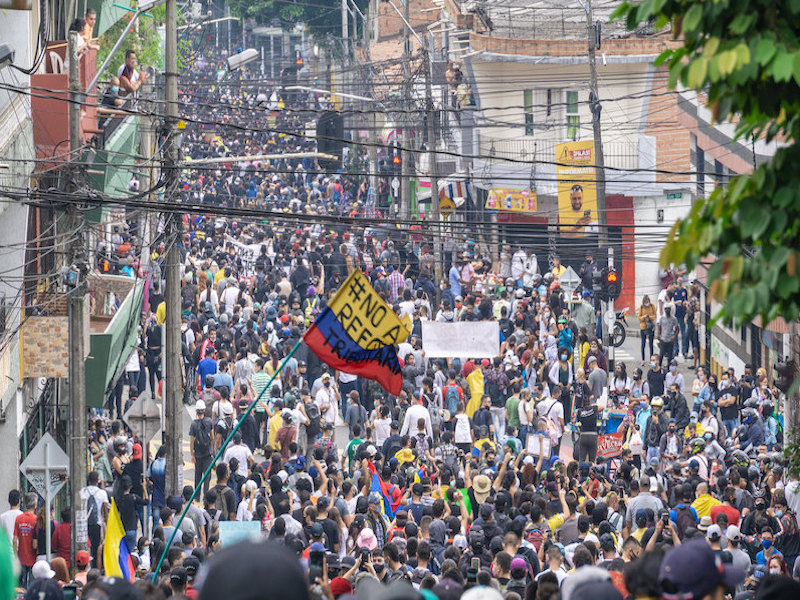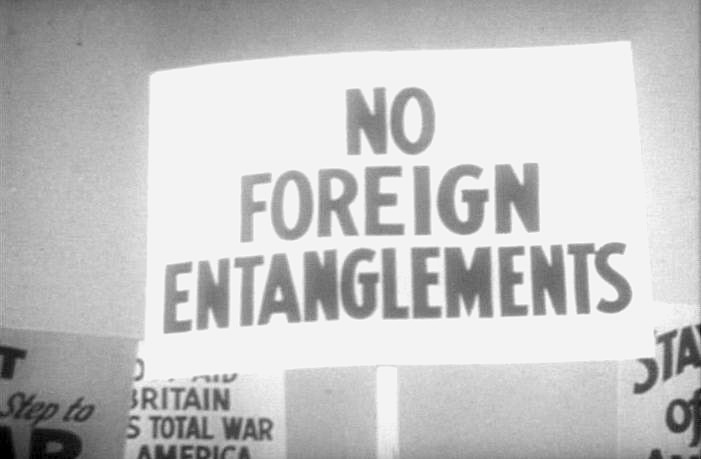Over the last two decades, NATO has advanced its enlargement policy, welcoming new members and partners. Colombia was the first – and currently, the only – Latin American country to become a NATO global partner, cooperating on issues such as cybersecurity and corruption. Both sides of this partnership work together to further their goals. Personnel from NATO members have benefited through training at Colombia’s International Demining Centre (CIDES), which is now accredited as a NATO Partnership Training and Education Centre (PTEC). In return, Colombia relies upon NATO to assist in the capacity building of its armed forces. However, Colombia has consistently failed to live up to the Alliance’s values through its systemic government corruption and questionable democratic record. Colombia’s Head of Mission to NATO, Felipe García Echeverri, stated that “corruption is incompatible with a modern, accountable democracy,” and yet Colombia is rife with it. While these continuous issues within Colombia may be perceived as damaging to NATO’s reputation, the partnership remains an asset. Throughout its history, the Alliance has leveraged these relationships and assisted its partners in establishing democratic institutions. Colombia’s case is no different. The Colombia-NATO partnership enables the advancement of NATO’s core political goals, establishes an opening for democratic dialogue in South America, and provides an opportunity for Colombia to learn and further commit itself to democratic principles.
Recent Protests Stemming from the Tax Proposal
Thousands of Colombians took to the streets at the end of April to protest against a government-proposed tax bill that was introduced as the national poverty rate experienced a 12.5% increase – hitting a rate of 50% during 2020. The proposed USD $6.7 billion tax plan aimed to pay the country’s debts. However, it would have disproportionately impacted marginalized groups, including the Afro-Latino and Indigenous populations, and lower socio-economic classes as public services and salaries would face higher taxes.
While the protests were mostly peaceful at the beginning, the situation deteriorated due to an excessive police response. NGOs have reported 68 dead, 419 missing, and thousands of cases of disproportionate use of force by the police.

On May 2nd, in response to a deteriorating situation and escalating protests, the Duque government withdrew the tax plan, promising to develop a different proposal. Although the government took a step back to re-evaluate the tax plan, and the finance minister resigned, the demonstrations have continued as citizens protest Colombia’s overarching problems.
The situation has captured the attention of human rights organizations and the international community, both of which are calling for an end to state violence and are urging dialogue between the government and its citizens. In light of these severe human rights violations reports and videos that prove police abuse, 650 civil society organizations have gathered calling for an investigation into the repression of protests. On the other hand, President Duque is painting a very different picture of these events. In his attempt to justify the state’s heavy-handed response, he claims that protestors are committing acts of vandalism and terrorism.
Democratic Suppression: Beyond the Protests
It is important to note that the current protests did not stem from a singular tax proposal. On the contrary, citizens’ unhappiness with the government has been exacerbated by long-term government corruption and deepening social inequality endemic to Colombian society. Citizens have been particularly vocal about earlier acts of democratic suppression through the murder of social leaders and the demobilization of the Revolutionary Forces of Colombia. Under these circumstances, the recent tax proposal demonstrated the government’s continuously stagnant response and elite dissonance from the issues that affect Colombian society. Currently, the events in Colombia constitute a twofold challenge: one being the spread of COVID-19 when there is a shortage of vaccines and ICU supplies, and the other being regional destabilization as the protests could spread across other Latin American countries experiencing similar problems.
Partnership with NATO
The situation in Colombia demonstrates the urgent need to take action in addressing socio-economic inequality and fighting government corruption; as a partner, NATO can play a pivotal role and provide guidance and support for reforms in these areas. Through the Partnership for Peace (PfP), NATO has established bilateral relations with individual Euro-Atlantic countries that have set their own priorities and pace of work. The Alliance’s Individual Partnership Action Plans (IPAPs) include several cooperation mechanisms, which aim at advancing domestic reforms. For example, through the IPAP programme with Armenia, there is cooperation in areas such as defence, rule of law, democratic standards, and corruption. Therefore, an IPAP could be helpful to Colombia as it would contain country-specific advice on a wide array of policy and institutional reforms while accommodating Colombia’s objectives and its abilities to comply with these reforms.
Through the Building Integrity Policy and Action Plan (BI), which aims to “strengthen good governance principles and practices, and reduce the risk of corruption in the defence and related security sector,” NATO can assist Colombia in further committing to democratic principles. The BI Programme, which included a variety of European countries – such as Bosnia and Herzegovina, Latvia, Bulgaria, as well as Afghanistan – led to improved national training and strategies to promote democratic practices. For instance, while Ukraine identified gaps in anticorruption investigative procedures and addressed them, Bosnia and Herzegovina, Bulgaria, Croatia and Georgia updated their codes of ethics for personnel. The partnership between Colombia and NATO is essential in combatting both the threat of COVID-19 and regional instability through continuous civil unrest. There is concern that Colombia’s protests may prove contagious and spark waves of protests throughout South America. However, by leveraging its relationship, setting specific objectives, and a reasonable timeframe, NATO could ensure both the region’s security and prosperity by providing consultations on regional issues, interoperability and institution building. Thus, the continuation of the partnership and dialogue between NATO and Colombia is crucial as it has the potential to ignite regional democratic reforms through NATO’s commitments, aid, and values.
Photo: Overview of the Colombian Protests (2021), by Oxi.Ap via Flickr. Licensed under CC by 2.0.
Disclaimer: Any views or opinions expressed in articles are solely those of the authors and do not necessarily represent the views of the NATO Association of Canada.




